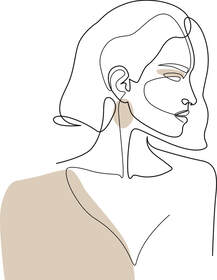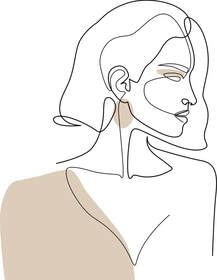Dr Lewis Blennerhassett is a leading Specialist Plastic Surgeon and has more than 20 years experience in performing prominent ear surgery and ear correction surgery - also known as otoplasty and ear pinning.
He performs surgery in Perth on both adults and children, prioritising safety and quality.
The care he offers is highly individualised and based on your needs.
After a comprehensive and thorough discussion with you, he will personally work with you on your ear surgery procedure plan.
*Dr Lewis Blennerhassett (MED0001532372), registered medical practitioner
Specialist Plastic Surgeon, Specialist registration in Surgery – Plastic Surgery
|
What is the cause of prominent ears?
The cause of prominent ears is usually due to the absence of a particular fold called the antihelical fold, which when absent causes a degree of flattening and forward projection or lateral projection of the ears. In most cases, the ears themselves are of normal size, however, they have not fully folded, and as a result they sit further out. |
What is otoplasty?
What is prominent ear surgery?
What is ear correction surgery?
Otoplasty is a word that means to change the shape or form of an ear. The common condition that requires otoplasty is called prominent ears.
Children
Although it is evident that some young children have prominent ears, it is rare for a child less than 6-7 years of age to be aware if this is a problem for them. Dr Blennerhassett would generally encourage delaying any surgical intervention for at least the first 6-7 years of the child’s life. (These are considered medical cases)
Once the child is actively involved in making a decision and discussing the pros and cons of the surgery, then we find that they are much better equipped to deal with the post-operative protocols, which include head bandaging and sutures etc.
What does prominent ear surgery involve?
Correction of the prominent ears takes place under general anaesthetic and usually involves making an incision on the posterior (rear or back) of the ear and then - using a number of different techniques - a suitable fold is made in the ear cartilage to allow it to sit back in a more normal or appropriate position. The wound on the back of the ear is then carefully sutured and a bandage is applied. The head bandage remains for approximately 10 days after the surgery.
The surgery is done as a Day Case procedure. See surgery risks below
Dr Blennerhassett performs prominent ear surgery in fully accredited, fully equipped hospitals with skilled anaesthetists. His team includes anaesthetists highly experienced in caring for children.
Prominent Ear Surgery Risks
From the Australian Society of Plastic Surgeons - https://plasticsurgery.org.au/
Modern surgery is generally safe but does have the potential for risks and complications to occur, states the Australian Society of Plastic Surgeons.
Some general risks and complications of surgery may include:
- Infection that may require treatment with antibiotics or further surgery in some cases
- Allergic reaction to sutures, dressings or antiseptic solutions
- The formation of a large blood clot (haematoma) beneath an incision site that may require drainage
- Chest infection, which may develop after general anaesthesia
- A sore throat caused by the breathing tube used during general anaesthesia
- Pain, bruising and swelling around the operated site(s)
- Keloids and hypertrophic scars that are raised, red and thickened scars that may form over the healed incisions. These may be itchy, annoying and unsightly but are not a threat to health
- Slow healing
- Short-term nausea following general anaesthesia and other risks related to anaesthesia
- Asymmetrical ears, further surgery may be necessary to correct symmetry problems or irregularities in the cartilage
- Re-protrusion of one or both ears may occur and require further surgery
- Nausea and loss of balance related to fluid accumulation within the inner ear
- Temporary or permanent loss of sensation in the skin around the surgical site and the surface of the ear
- Small areas of skin overlying the cartilage of the ear my die, resulting in the formation of an ulcer that may take several weeks to heal.
- Dr Blennerhassett will discuss your individual expectations, risks and recovery management in person
Referral Needed
*For plastic surgery medical cases - You will need to first obtain a referral from your GP
*For cosmetic cases - You will now need to first obtain a referral for cosmetic surgery from your GP.
We will also get you to complete a screening questionnaire. The changes are new rulings from the Medical Board and AHPRA. They are being introduced across Australia to further support high quality care. Cosmetic surgery is a serious decision, needing planning and consideration.
If you have any questions or need any assistance with these changes, our lovely staff members are ready on standby to help out. Pls phone Tara, Domenica or Paula on 08 93816977
What does prominent ear surgery aftercare and recovery involve?
Patients are instructed not to perform any sporting activity and also to keep the head bandages dry for the first 10 days or so. At that stage, they will return to our rooms and we will remove the head bandage and sutures.
Further instructions on how to manage the ears will be given at that stage. Usually the ears are a little bruised at the time of removal of the bandages and also the ears may feel slightly numb when touched. The bruising and numbness will gradually settle over the ensuing few weeks.
All dressings changes are carried out by our highly experienced nurses.
What is the cost of prominent ear surgery in Perth?
Dr Blennerhassett's practice staff will be able to advise you of the costs associated with your individualised treatment plan for prominent ear surgery.
Please phone Tara, Domenica or Paula on 08 9381 6977
In general, costs associated with prominent ear surgery may include:
*surgeon's fee
*hospital or surgical facility costs
*anaesthesia fees
*prescriptions for medication
In many cases, surgery for prominent ears can be claimed on private insurance, provided it is done prior to the patient's 18th birthday. Please contact us on 08 9381 6977 for more details on this.
*Please note – recent Medicare changes have impacted on this procedure (see “before surgery”). After turning 18, all costs will have to be met by the patient.


